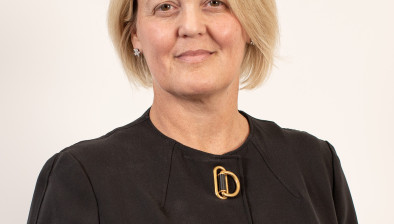Three quarters (73%) of adults fall below new financial literacy benchmark

A new report from Wealthify has revealed almost three quarters (73%) of the country fall below new Financial Literacy Benchmark, exposing the UK as a weak performer on financial literacy relative to other similarly developed economies such as France, Canada, and New Zealand.
Wealthify has worked with independent economic think tank, the Centre for Economics and Business Research (CEBR), to develop the UK’s first ever barometer to measure levels of financial literacy across the country. The proprietary model was designed to measure people’s understanding of 10 frequently discussed financial topics and terms such as inflation, taxes, pensions, and savings.
The results, from a nationally representative panel of 2,250 interviewees, created a Financial Literacy Benchmark. Based on and designed by analysing previous models, Wealthify and CEBR were able to benchmark financial literacy against established criteria for measuring levels of financial understanding.
The minimum threshold for being ‘financially literate’, according to CEBR, is a score of 6.5 out of 10 of the questions posed, and the average respondent answered only half (5) of the questions correctly. Only 1 in 20 (5%) gave correct answers for all ten questions.
The results showed a strong correlation between financial understanding and behaviours, with 7 in 10 (71%) respondents in the top quartile for financial understanding making contributions to a pension pot, compared to only 4 in 10 (40%) of those in the bottom quartile. Additionally, the savings rate for respondents at the top end (13%) of the benchmark scale was significantly higher than for those at the bottom (8%), suggesting that greater financial understanding is linked to better financial wellness and outlook.
With the average score across all ages already below the threshold for financial literacy (6.5), the report also exposed a stark gap between young people, aged 16-17 years (who averaged 2.3 correct responses) and older respondents, aged 71-80 years (who, on average, had 6.2 correct responses).
Fewer than half (45%) of 16-17-year-olds correctly answered questions about what impact inflation has on their savings (compared to 60% of the whole sample). Additionally, despite the current focus in the news, for questions about mortgages, just 36% of under 18s answered correctly (compared to 65% of the whole sample).
Experience no doubt plays a part in increased financial understanding. However, these results raise concerns about the long-term outlook for financial wellness in the UK if the next generation are not better equipped with financial knowledge and skills, especially as they approach financial maturity, with newfound freedom to make their own financial choices.
Andy Russell, CEO of Wealthify commented: “The results of our inaugural Financial Literacy Benchmark assessment with CEBR show 16 and 17-year-olds lack vital knowledge about day-to-day finance. These are essential skills, especially as many of them are about to become financially independent for the first time, in a tough economic environment. It is a critical time in any person’s life, when they first have an opportunity to establish healthy money habits of their own and build confidence in financial decisions that can last a lifetime; something made even more challenging by the current cost of living crisis.
“The findings show a clear association between age, exposure to monetary decisions and choices over time, and levels of financial literacy. This suggests that earlier introduction to real-world financial decision-making could have a positive impact on young peoples’ long-term outlook. However, teachers have told us they lack the confidence and resources to cover these topics with young people. That is why we are working with financial and enterprise education charity, Young Enterprise, to launch free financial education tools in schools this September, designed to help 16 to 18-year-olds get to grips with essential monetary know-how, just as they reach financial maturity.”
On a regional basis, the highest number of correct answers was reported amongst respondents in the South West, at 5.5 on average. Meanwhile, the lowest average score was witnessed in the North East of the country, at 4.3 correct responses. Households in the North East scored particularly poorly on the questions covering inflation and investment.
Households in the South West were strong performers on the interest rate questions. Households in Yorkshire and Humberside were amongst the weakest performers on these questions. London households were amongst the poorest performers on the prices and mortgage questions.
Sharon Davies, CEO of Young Enterprise, added: “The new benchmark from Wealthify and CEBR offers important fresh insight into the poor state of financial literacy across the UK population – particularly among young people – and how that links to financial behaviour. Young people and students rank lowest for financial literacy. That lack of knowledge has a hugely detrimental effect on their financial health – with real consequences for the rest of their lives.
“The current cost of living crisis and move towards a more cashless society only increases the need to provide young people with a solid financial education. Any investment to improve young people’s financial literacy not only pays huge dividends to their lives, but their families, communities, and wider society.”
Sam Miley, senior economist at CEBR, commented: “This research reveals considerable divergence in financial understanding amongst the UK population and between generations. We have also found a strong association between such understanding and the prevalence of positive financial behaviours, such as saving, contributing to a pension, and avoiding risky payment mechanisms.
“This suggests that those lacking financial literacy could be at a disadvantage when it comes to their financial health. This point is made all the more pertinent given the difficulties faced by many households amidst the ongoing cost-of-living crisis.”








